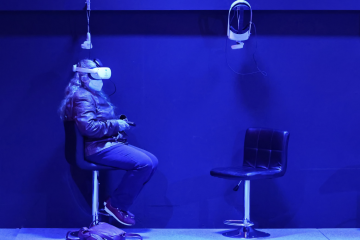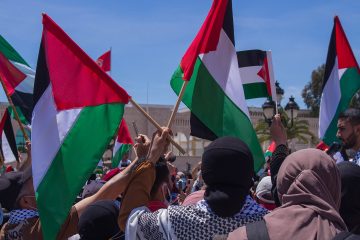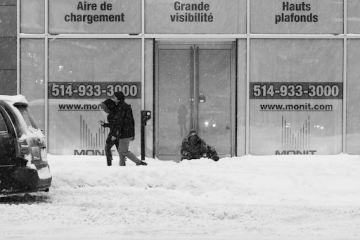Brazil is often celebrated for hosting part of the Amazon rainforest, known for its sheer size and diverse ecosystems, but the country also boasts another, lesser-known wildlife reservoir towards its western border: the Pantanal. This biome, a vast wetland of approximately 200,000 square kilometers spreading over parts of Brazil, Bolivia, and Paraguay, is home to Indigenous tribes as well as various endangered species of fauna and flora. The ecosystem has been experiencing massively destructive wildfires for months, at a rate exponentially higher than past years. These fires are increasingly impacting Indigenous communities living in the region, and are undoubtedly exacerbated by the conservative environmental policies of Brazil’s current president, Jair Bolsonaro, as he slowly opens up this previously protected nature reserve to destructive commercial use.
ONGOING FIRES IN THE PANTANAL SINCE JANUARY 2020
In ordinary dry seasons — July to October — fires commonly occur in the Pantanal, and are actually beneficial for some areas since certain plant species have become dependent on the resulting heat to grow. As opposed to the out-of-control burning seen today, wildfires in past years have often been caused by lightning strikes or have been set by farmers in a controlled manner to clear pasture; in both cases, they die out quickly with the help of the region’s natural waterways. However, the fires that have thus far destroyed nearly 22 percent of the Pantanal this year are suspected by Brazilian authorities to have been purposefully set off by cattle ranchers with intentions of profiteering from the vegetation’s destruction, as the deforestation would allow for the expansion of their farms and, in turn, economic gain. The exceptional devastation of these fires have been exacerbated by the worsening climate crisis, which is responsible for the fact that the Pantanal’s current drought is one of the most extreme in nearly 50 years.
These wildfires are having a “cascade effect” on the region: the loss of massive amounts of plant life results in a growing number of dying herbivores, which in turn increases the deaths of carnivores who consume herbivores. The climate stance of Bolsonaro, Brazil’s far-right incumbent president, will only aggravate these circumstances, given that scientific predictions indicate the likely persistence of these extreme weather events in the face of global warming.
BOLSONARO’S CLIMATE POLICIES: THEIR IMPACT
Since his election to Brazil’s presidency in November 2018, Bolsonaro has undone numerous environmental advances made by prior administrations, who sought to make ecologically conscious decisions regarding the nation’s economy. While previous leaders aimed to reduce deforestation, even at the expense of Brazilian agricultural companies, Bolsonaro believes that “considerations about the planet should not be allowed to inhibit industry.” His campaign was largely based on weakening environmental laws to permit infrastructure projects, banning the creation of more Indigenous territories, and allowing logging and mining on protected lands. Such ideas reflect the skeptical stance he has taken in regards to climate change, as well as his denial of the fact that it is anthropogenic. Only months into his presidency, Bolsonaro’s promise to free the land for commercial use and the resultant rolling back of environmental regulations has resulted in more than 80 percent of additional forest lost compared to the same time period in the previous year. Environmental agencies’ budgets were severely cut — with a major one known as Ibama losing more than 25 percent of its funding — and fines previously taxing illegal deforestation, logging, and mining of protected areas were reduced. With regulations loosened, Bolsonaro plans to allow for the growth of the agribusiness sector and promote the development of soy fields and cattle ranches, two of the nation’s leading industries economically. This has been a major factor behind the deforestation and massive fires in both the Amazon last year, and the current Pantanal fires as well. Such devastation is further threatened by Bolsonaro’s plan to remove native populations from their protected land to allow for commercial activity, as according to environmentalists, Indigenous stewardship in these regions is essential for ecological conservation.
EFFECTS ON INDIGENOUS COMMUNITIES: THEIR RIGHTS AND LIVELIHOODS
Besides the environmental implications of forcibly removing Indigenous communities from the Pantanal, Bolsonaro’s policies pose an existential threat to Indigenous livelihoods and histories. He has repeatedly stated that Indigenous communities should be “integrated into society” instead of living on separate reserves. This, however, would achieve the opposite of what is important to these groups: upholding their native cultures. Bolsonaro views this as an obstacle to obtaining the 14 percent of national territory that these tribes live on. Days after his election, he attempted to take away the right to land demarcation from the National Indian Foundation — essentially, the law used to sector off protected lands for Indigenes — and instead wished to allow the Ministry of Agriculture to control it. Although this decision was overruled by the Supreme Court, such an action would have opened up the lands to agribusiness and ensured their eventual destruction. Despite this failure, other operations are being led by Bolsonaro’s administration, which also pose a serious threat for natives’ rights and territories, such as the proliferation of mining excavation sites closer to their lands than ever before.
The fires in the Pantanal have highlighted the ongoing political and environmental issues within Brazil as well as their impact internally and externally — naturally, the impact of Bolsonaro’s policies extend far beyond the nature reserves within Brazil. Considering the size of the Amazon and the Pantanal, uncontrollable blazing in both leads to drastically increasing greenhouse gases and rising temperatures, which in turn contributes to a vicious cycle of more fires and a global decrease of plant life. It is frightening that, even if his administration is replaced by the next election, the impact of the policies being presently implemented will have consequences far into the future. Global warming and the livelihood of Brazil’s Indigenous will remain at risk so long as this far-right administration heads the nation, hence the urgent need for change before it becomes too late to reverse the impact of their actions.
Edited by Amelia Coleman and Arimbi Wahono.




